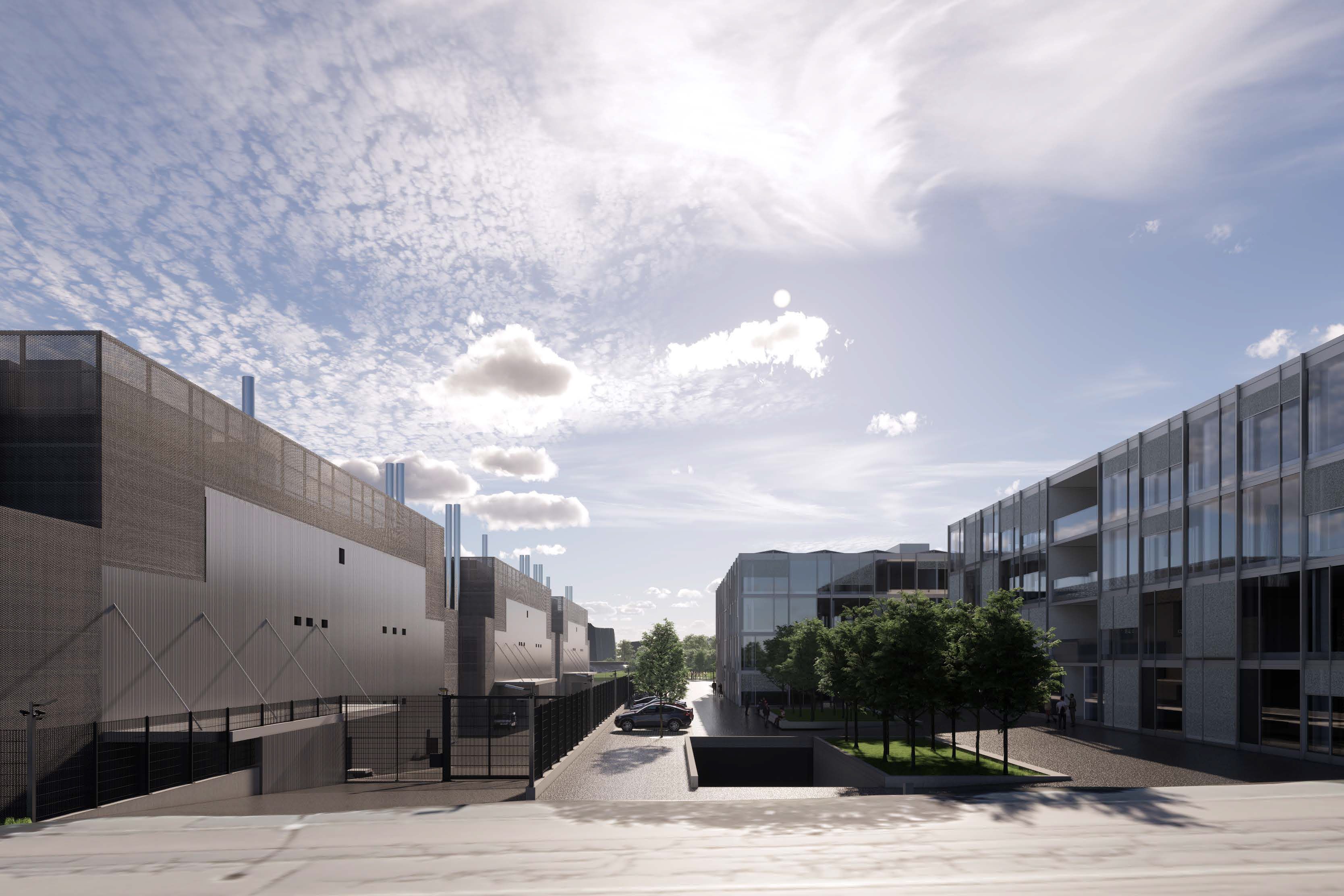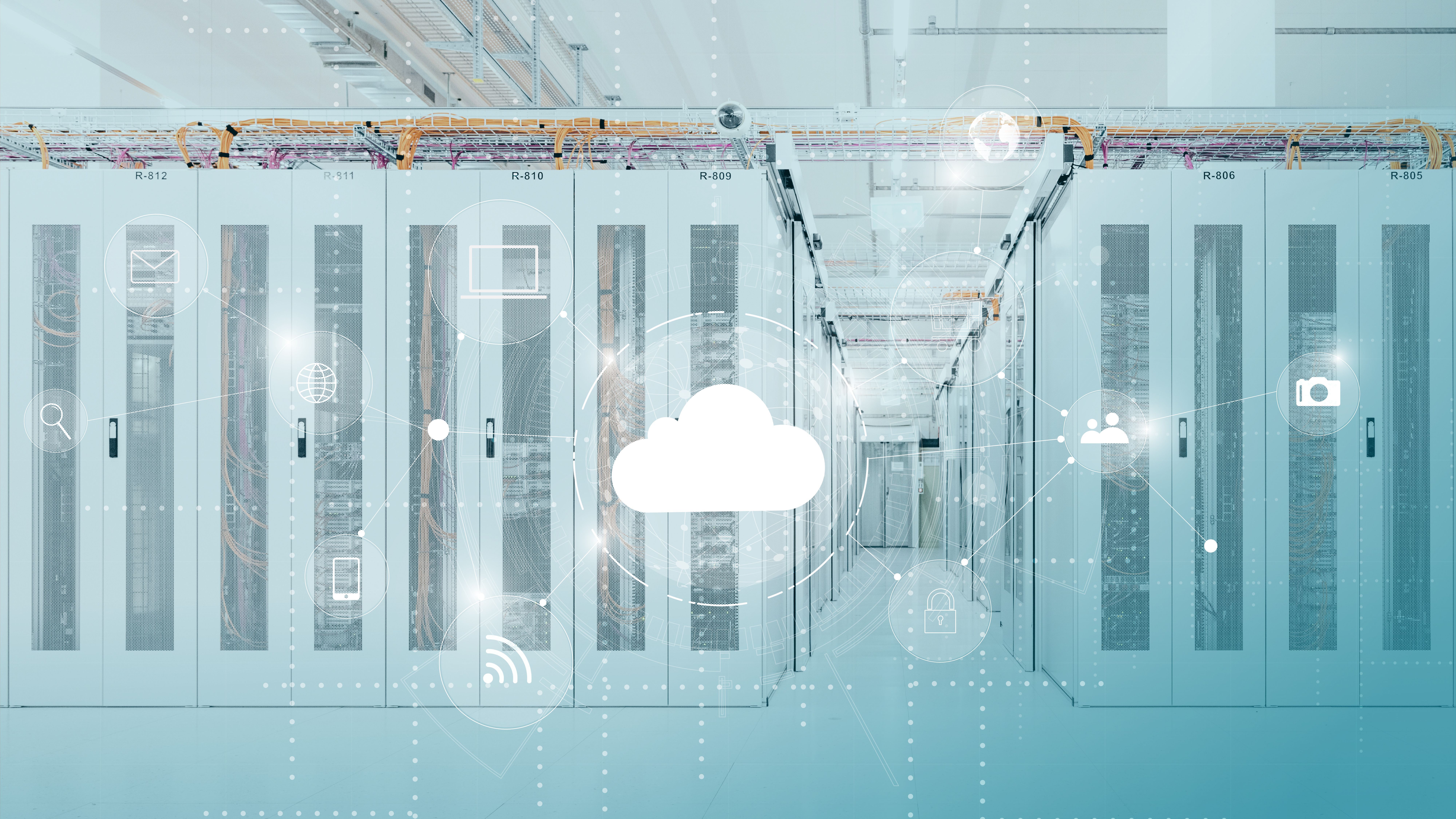Security of supply and power shortages – how do data centers deal with these issues?
Data is a vital resource for all companies these days. The requirements regarding system availability and security, increased efficiency, sustainability, and, last but not least, data management are now much greater than in the past. Data centers that house a large number of systems and as a result store huge volumes of data must be fully prepared to cope with emergencies and interruptions, including power shortages, ensuring seamless operation at all times. We look at how Green, the leading Swiss data center provider, ensures business continuity and sustainable data center operations.
In response to increasing demand, international cloud providers such as Amazon Web Services, Google, and Microsoft are establishing their own cloud regions in the data centers of major providers, including in Switzerland. Not only are hyperscalers expanding, but large companies and SMEs are also taking advantage of modern data centers with a secure energy supply. From SMEs to large companies, everyone is on a journey to the cloud. Switzerland as a data location plays a key role in this. In addition to boasting well-developed infrastructure and highly qualified specialists, Switzerland ranks as one of the better data locations in terms of legal certainty and stability.
Green is also experiencing strong demand, having more than doubled its capacity over the past three years. Many companies are moving their own server rooms and systems to external data centers or directly to the public cloud. By outsourcing to Green, they benefit from increased security, energy-efficient management, comprehensive data connections, the required specialist staff, and a greater guarantee of energy supply.
Are you looking for modern and secure housing in Switzerland? |
“At Green, companies have always benefited from an infrastructure designed for seamless and energy-efficient operation,” explains Roger Süess, CEO of Green. “Our emergency power supply is part of our security concept. At all our sites, it consists of UPS systems backed up by batteries, diesel generators, diesel supplies, and secured supply chains," explains Andrea Campomilla, COO responsible for the data centers at Green. This compensates for interruptions and ensures seamless operations.
Data centers are not part of the problem, but part of the solution
In connection with the energy crisis, the question quickly arose as to whether data centers, as major energy consumers, were not downright energy guzzlers and how and where there was potential for savings. Roger Süess explains: “Over 80 percent of the energy consumption in a data center can be attributed to hardware operation. Large data centers are already highly optimized today; they consume less than 20 percent of the total energy consumption for cooling, security, and systems.”
The focus should therefore be on virtualization, more efficient hardware, or the outsourcing of systems. Studies show that older corporate data centers in particular could save up to 46 percent in energy during operation. They often cool too much, are poorly optimized, and do not implement new concepts such as the use of waste heat as heating, natural cooling with ambient air (freecooling), and targeted cooling. These factors have a very large potential for consumption optimization: at Green, waste heat recovery at the new site in Dielsdorf will supply around 3,500 households as well as industry and commerce with heating and process heat. Since the heat network is designed as a closed-loop system, it supplies cooling back to Green. This reduces cooling requirements in the data center and saves energy. All Green data centers use freecooling over 300 days a year, and servers are enclosed to ensure efficient cooling. In addition, Green continuously invests in optimizing energy efficiency with new concepts and equipment, operational optimization, and the use of renewable energy for data center operations.
Are you looking for energy-efficient and secure housing? |
When it comes to power shortages, there is one potentially interesting benefit associated with the extensive and expensive emergency power supply of data centers: “Data centers could be in a position to make an important contribution during a power shortage by feeding excess capacity into the grid from their emergency power supply,” explains Roger Süess. Green is positive about this concept and is already in close contact with the relevant authorities and the balancing energy pool. “The generators are already prepared and could be used in an emergency,” says Roger Süess. Green is already supporting the tertiary energy grid with its emergency power system. Once the relevant regulations and details have been clarified, Green will be able to feed energy into the grid using the emergency power supply system to support the energy supply and stabilize the grid. “Data centers are part of the solution and we are ready to help in the crisis situation,” explains Roger Süess.
The energy crisis affects all companies and raises many questions about security of supply. This is likely to further accelerate the outsourcing of IT systems and also the outsourcing of data centers. Companies are becoming increasingly reluctant to deal with issues such as safety, energy efficiency, and security of supply by themselves.
Is your data center no longer up to scratch? |
Other topics you may be interested in:

Data Center Outsourcing
Replacing your own server rooms with sustainable data centers is an investment in the future.

Best-in-Class Data Center
Sustainable from the architecture to the cooling concept to the use of waste heat. This is our new Metro Campus Zurich.

Journey to the Cloud
Smart, hybrid and tailored to your needs, we support you on the Journey to the Cloud.
